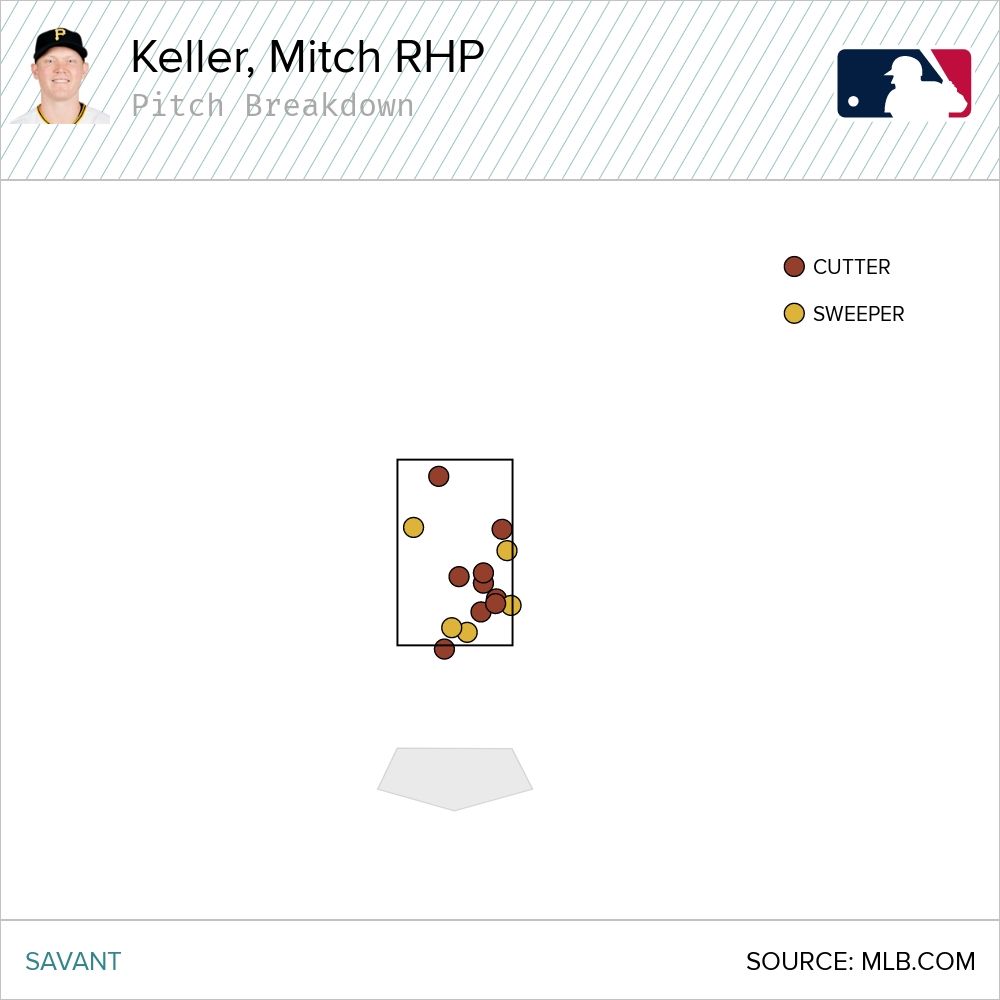ANAHEIM, Calif. -- There's no denying that Mitch Keller has been the Pirates' feel-good pitching story this year or that he was deserving of an All-Star nod earlier this month. But these first two turns after the break have been far from All-Star worthy.
Actually, the past two months have paled by comparison to his first two.
Keller allowed a season-high three home runs Sunday in what would end up being a 7-5 Pirates loss to the Angels. In the process, his ERA crept up to 4.01 and he's now taken a loss in three of his last four outings. It's a small sample size, but it's undeniable that the Pirates' July struggles are partially because their ace is not pitching like one.
This has been the case for about half of the season now for Keller. He's made 21 starts, and the first 10 were unquestionably better than the last 11:
First 10 starts: 62 2/3 IP, 2.44 ERA, 2.68 FIP, .248 wOBA, .264 xWOBA
Last 11 starts: 65 1/3 IP, 5.51 ERA, 4.87 FIP, .342 wOBA, .331 xwOBA
It hasn't been all bad for Keller in those 11 starts. In fact, he's gone at least six innings while allowing zero or one runs in four of his last eight outings. So this analysis is far less "the sky is falling" and more "what's happened to Keller's consistency?" Because even when Keller was off in the first half of the season, he found a way to minimize the damage and keep the Pirates in the game. That hasn't been the case when things go poorly lately.
And while these last two starts have come after a change in his rotation schedule because of the All-Star game and break, Keller doesn't think that's contributed to this bump in the road.
"I feel really good," Keller said Sunday. "Stuff felt the best it's felt, probably, since the beginning of the year today."
Looking at Keller's individual pitch data, the four-seamer has been as sharp as its been all season, getting roughly the same batted ball peripherals, whiff rate and results as it did for most of April and May. The trouble has been with his offspeed and breaking stuff. That was seen Sunday, where Keller's three home runs came against a sweeper, a cutter and a changeup.
Let's focus in on the sweeper and cutter, Keller's go-to breaking balls. The cutter is an incredibly important pitch to left-handers, especially whenever he is able to "X" it with his sinker. (I went more in depth with how he does that in a previous Mound Visit.) It's still his primary breaking ball to lefties, but they are on top of it now. In April, left-handed hitters had a .222 batting average against the cutter. In July, it's .529.
The sweeper has been Keller's best breaking pitch this season. Even in this shaky July, right-handers don't have a hit against it this month. But left-handers? After going 2-for-22 against it to start the year (.091 average), lefty hitters are 5-for-15 against sweepers this month (.333) with a couple doubles and that home run Sunday.
All told, those breaking balls are a big reason why Keller went from holding left-handers to a .197 batting average and .259 wOBA over his first 10 starts to a .306 average and .398 wOBA over his last 11.
Keller and Derek Shelton both said postgame that pitch location has been the issue of late, and looking at where those hits against the cutter and sweeper have been this month, it would be hard to argue that:

Most of them are thigh or belt high and cutting in towards left-handed hitters. The pitch is naturally going to go towards the batter in that situation, but ideally, it would either sink below the knees or keep running in on the hitter. Keller hasn't consistently done that this month, and he's paid for it.
"He's left more balls in good hitting zones," Shelton said postgame Sunday. "When you leave a ball in a good hitting zone, you're going to get hit."
Keller said that he was going to do video work ahead of his next start to try to figure out what's been off of late. Looking at some video myself, there isn't anything that immediately sticks out. If you really want to stretch, the vertical release point has been gradually dipping as the year has progressed, but this is probably just grasping at straws:
-original.jpg)
At the risk of oversimplifying, the approach looks about the same. The issue is just not consistently executing.
Looking at that pitch mix, at least short term, could be a possible way to get out of this funk. The fastball has been working. Perhaps leaning on it a bit more while the breaking stuff gets sorted out is a way to get back on track, especially since Shelton cited fastball usage as part of the cause for his fifth inning Sunday, where Keller allowed two homers and five runs.
"He got away from his fastball a little bit," Shelton said. "Had some situations where he could have used it and got beat with some secondary stuff."
It's way too soon to be all that concerned with Keller. This could be as simple as a stumble out of the gate in July and a handful of iffy starts mixed in with some great ones before that. But for a team that has been on skid since May, they need a stopper. Keller was that for a while. The team could use him in that role again.

